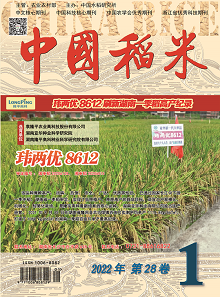Suitable pH in rice seedling substrate is not only beneficial to the normal growth of rice, but also beneficial to the resistance of rice to disease. Therefore, it is necessary to study the effects of different types of acid-regulating agents on acid-regulating effect of rice seedling substrate and rice growth. The fermentation substrate made by ourselves are used in present study and applied with different concentrations of citric acid, dilute sulfuric acid, sulfur, ammonium dihydrogen phosphate, the pH and electrical conductivity (EC) of the substrate were detected. Samples were collected after 12 days’ growth, and the results showed that:(1) the application of ammonium dihydrogen phosphate showed a better acid-regulating effect and lower EC value than other treatments; the application of citric acid, dilute sulfuric acid and sulfur also displayed well acid-regulating effect, however, EC value of seedling substrate was increased with the increasing of acid-regulating agents concentration.(2) The plant height, root length, aboveground dry weight of 100 plants, aboveground total N and total P contents of the rice seedlings in the ammonium dihydrogen phosphate treated seedling substrate were significantly higher than other treatments. The growth index of rice seedlings which treated with dilute sulfuric acid and sulfur were inferior to the ammonium dihydrogen phosphate treatment, and the rice growth was inhibited under high acid-regulating agents’ concentration conditions. However, the leaves of the rice seedlings in the dilute sulfuric acid treatment contained higher chlorophyll content. The root growth of rice seedlings was significantly inhibited by citric acid. In conclusion, ammonium dihydrogen phosphate can be used as an acid-regulating agent for fermentation substrate in this experiment, followed by sulfuric acid and sulfur, while citric acid is not suitable as an acid-regulating agent for fermentation substrate.

